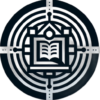Introduction
The reliable generation, transmission, and distribution of electricity are critical for modern infrastructure. The Power System – I course provides a comprehensive understanding of various power generation methods, AC and DC supply systems, transmission line design, and grounding techniques. These concepts form the backbone of power system engineering, preparing students for industry roles and advanced studies.
Syllabus Overview
Unit 1: Conventional Generation, Load Curves, and Tariffs
- Topics Covered:
- Overview of power generation in India and Gujarat
- Steam, hydroelectric, nuclear, and gas turbine power plants: schematics, components, and comparisons
- Load curves: terms, factors, and duration curve analysis
- Tariff structures: types, desirable characteristics, and practical examples
- Key Applications:
- Understanding electricity generation economics and operational efficiency.
- Hours: 8 | Weightage: 8%
Unit 2: Wind and Solar Power Generation
- Topics Covered:
- Wind power plants: components, rotor principles, aerodynamic efficiency, and operation characteristics of SCIG and WRIG wind turbines
- Solar power: CSP plants, photovoltaic cells, performance characteristics, and grid-connected PV systems
- Key Applications:
- Renewable energy integration for sustainable power systems.
- Hours: 8 | Weightage: 10%
Unit 3: Electrical Supply Systems
- Topics Covered:
- Typical AC power supply schemes
- Advantages of high-voltage transmission
- Overhead vs. underground systems
- Distribution system requirements and connection schemes
- AC distribution problem-solving techniques
- Key Applications:
- Design and analysis of electrical supply networks.
- Hours: 5 | Weightage: 7%
Unit 4: Power Factor and Power Factor Improvement
- Topics Covered:
- Power factor triangle, causes, and disadvantages of low power factor
- Methods and equipment for power factor improvement
- Economic calculations and power factor correction
- Key Applications:
- Enhancing system efficiency and reducing energy losses.
- Hours: 5 | Weightage: 8%
Unit 5: Mechanical Design of Overhead Transmission Lines
- Topics Covered:
- Components: conductors, supports, insulators
- String efficiency and improvement methods
- Sag calculation under various conditions
- Key Applications:
- Designing and maintaining overhead transmission lines.
- Hours: 8 | Weightage: 15%
Unit 6: Transmission Line Parameters
- Topics Covered:
- Line resistance, inductance, and capacitance for various configurations
- Effects of self and mutual inductances, symmetrical/asymmetrical spacing, and earth capacitance
- Series and parallel resonance
- Key Applications:
- Accurate calculation of transmission line behavior.
- Hours: 14 | Weightage: 24%
Unit 7: Underground Cables
- Topics Covered:
- Construction, classification, and insulation of cables
- Capacitance and dielectric stress in single and three-core cables
- Grading techniques: capacitance and inter-sheath grading
- Key Applications:
- Optimal design and usage of underground cables in urban power systems.
- Hours: 7 | Weightage: 12%
Unit 8: Substations
- Topics Covered:
- Types: transformer, pole-mounted, and underground substations
- Equipment, bus-bar arrangements, and substation layouts
- Key diagrams for 66/11 kV and 11/400 kV substations
- Key Applications:
- Planning and designing efficient substations for power distribution.
- Hours: 4 | Weightage: 8%
Unit 9: Neutral Grounding
- Topics Covered:
- Ungrounded systems and methods of neutral grounding
- Advantages and techniques: solid, resistance, reactance, and resonant grounding
- Key Applications:
- Enhancing system safety and fault handling in power networks.
- Hours: 5 | Weightage: 8%
